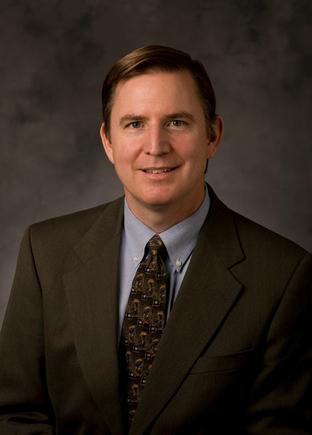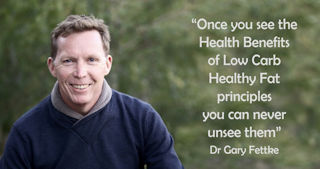When the establishment stand strong against change, science takes a back seat. There is no evidence that is convincing if your professional life, your reputation, or your income, is dependent on the that evidence being wrong.
In our personal lives we use what we "know," and tend to reject ideas that don't fit into the pattern of our prior knowledge. This makes it very difficult to learn anything really new. We push it away without examination.
There is a long list of very well qualified people, who's professional careers were destroyed because the community in which they lived was unwilling to accept their ideas. In history I think of Martin Luther, and Galileo, both of whom stood against the might of the church. Charles Darwin delayed publication of his evolutionary ideas for the same reason.
There are also many examples in medical practice. ![]() Dr. Ignaz Semmelweis, who told doctors that they were the cause of spreading childbed fever in the hospital. If they washed their hands in lime water, they would save women's lives. He was laughed at and ignored.
Dr. Ignaz Semmelweis, who told doctors that they were the cause of spreading childbed fever in the hospital. If they washed their hands in lime water, they would save women's lives. He was laughed at and ignored. ![]() Dr Fred A Kummerow, who for years stood against the ideas of
Dr Fred A Kummerow, who for years stood against the ideas of ![]() Ancel Keys and warned us that hydrogenated oils were harmful to health (in 1957). Fifty years later the FDA, accepts that he was right (2009). The FDA noted that there are 30,000 items in the American diet that contain trans fats.
Ancel Keys and warned us that hydrogenated oils were harmful to health (in 1957). Fifty years later the FDA, accepts that he was right (2009). The FDA noted that there are 30,000 items in the American diet that contain trans fats.
There is also Dr. Atkins who I write about below, and ![]() Dr. Stephen Phinney who was actively encouraged to leave the medical profession, when he discovered, and recommended to patients, the benefits of a low carbohydrate diet. Stephen Phinney is one of the hero's in this website.
Dr. Stephen Phinney who was actively encouraged to leave the medical profession, when he discovered, and recommended to patients, the benefits of a low carbohydrate diet. Stephen Phinney is one of the hero's in this website.
Malpractice Trials Past and Present
Dr Robert Atkins

Like many people in this field, Dr Atkins began by experimenting with himself, in the 1960's. He had success with a low-carbohydrate diet and began to tell his patients about that.
![]() Dr Atkins was a medical doctor, not a researcher. He claimed that over 9 years he had successfully advised 10,000 patients, and that was the only proof needed to validate his work. However, he was relentlessly attacked by the medical and research establishment after his book, Dr Atkins Diet Revolution, became a best seller in 1972.
Dr Atkins was a medical doctor, not a researcher. He claimed that over 9 years he had successfully advised 10,000 patients, and that was the only proof needed to validate his work. However, he was relentlessly attacked by the medical and research establishment after his book, Dr Atkins Diet Revolution, became a best seller in 1972.
![]() Dr. Frederick Stare and Dr. Theodore Van Itallie, were scientifically credible voices and they attacked Dr. Atkins in the press. Dr. Stare wrote, "Any book that recommends unlimited amounts of meat, butter and eggs, as this book does, is dangerous." ... "The author who makes this suggestion is guilty of gross malpractice."
Dr. Frederick Stare and Dr. Theodore Van Itallie, were scientifically credible voices and they attacked Dr. Atkins in the press. Dr. Stare wrote, "Any book that recommends unlimited amounts of meat, butter and eggs, as this book does, is dangerous." ... "The author who makes this suggestion is guilty of gross malpractice."
The American Dietetic Association described the Atkins Diet as a "nutritionist's nightmare."
As the foundations of the Dietary Guidelines for Americans were established, both Dr Ornish and Dr. Atkins complained that the recommendations were wrong. Each wanting to move the recommended diet in opposite directions. During his lifetime, there was never any scientific research to back Atkins's ideas.
In the late 1990's ![]() Dr. Eric Westman, at Duke University, was inspired by the dietary success of a patient, to examine the medical files of Dr. Atkins. Not satisfied, he proposed some clinical research and got funding from the NIH. (For years the NIH, had refused to fund Stephen Phinney, for similar research.)
Dr. Eric Westman, at Duke University, was inspired by the dietary success of a patient, to examine the medical files of Dr. Atkins. Not satisfied, he proposed some clinical research and got funding from the NIH. (For years the NIH, had refused to fund Stephen Phinney, for similar research.)

Eric Westman was particularly interested in the dietary effect on type 2 diabetes. He found that reducing carbohydrates and replacing them with dietary fat was extremely effective in managing diabetes. He has been strongly opposed by the American Diabetes Association, which continues to recommend a low-fat diet for diabetics.
Eric Westman was surprised at the vigorous opposition he encountered. He wrote, "When an unscientific fear of dietary fat pervades the culture so much that research groups who ... provide funding will not allow research into high fat diets for fear of "harming people." ... "The situation will not allow science to self-correct." ... "A sort of scientific taboo is created" which discourages research applications and prevents research funding.
Controversy in Australia
Doctor Forbidden to Speak
In Tasmania, Dr Gary Fettke runs a very successful clinic for obesity, diabetes, metabolic syndrome.
Gary Fettke advocates LCHF diet for diabetics, “so I can stop removing feet by surgical procedure.”
However his public criticism of the dietary guidelines and his comments about the dietary prevention of cancer have annoyed some professional peers. The case arose in 2014 after the first of three anonymous DAA dietitians lodged a complaint against Fettke with AHPRA. Chief among the complaints was that he advised LCHF diets to patients with obesity and type 2 diabetes.

After a 2 1/2 year investigation, in 2016, (despite no incidence of patient harm) the Australian Health Practitioner Regulation Agency decided he was not qualified to give nutritional advice. They ‘silenced’ him with a lifelong, non appealable ban from talking to his patients, or the wider community about nutrition. “In particular that he does not provide specific advice or recommendations on the subject of nutrition and how it relates to the management of diabetes, or the treatment and/or prevention of cancer.”
In her "FoodMed" blog, Marika Sboros writes in detail about this case. Gary Fettke's wife Belinda became very active as a researcher in support of her husband, speaking out in Australia, when her husband was officially silenced.
In September, 2018 the Australian Health Practitioner Regulation Agency (AHPRA) has dropped all charges against him. In a letter to Fettke, AHPRA clears him of any wrongdoing or misconduct in a case that has dragged on for more than four years. The Agency has also apologised for its actions against him. Those actions include slapping a lifetime ban on him in 2016 from speaking to patients about nutrition. Not just any nutrition but his advocacy for low-carb, healthy-fat (LCHF) therapies.
De-registered from her Profession
Late in 2014 a new client, laid a complaint with the Dietitians Association of Australia, and that authority charged Jennifer Elliott with using a “non-evidenced based” dietary approaches.
In May, 2016 the Dietitians Association of Australia canceled her registration.
Elliott's employer the Southern New South Wales Local Health District, dismissed her, and issued a warning to all dietitians it employed that nobody was permitted to recommend a low carbohydrate diet to any client.
We wonder why the Dietary Goals have remained almost entirely unchanged for 40 years. This is why. To challenge the guidelines can be a career destroying move.

Jennifer Elliott is an Australian trained dietitian. 35 years in practice.
Once, she believed that the low fat high carbohydrate was best for most people. She convinced her own parents to eat that way.
She had 3 children, but one daughter got fat on the same diet everyone else ate. When the daughter was 12 there was a crisis, she gained weight rapidly. The family GP diagnosed her daughter as insulin resistant.
Jennifer knew almost nothing about insulin resistance. Symptoms were mouth breathing, snoring, reflux, mood swings, lack of energy and always being hungry.
Jennifer found a solution. A special breakfast with no carbohydrate.
Lunch was similar, only protein and salad. Then a normal meal for dinner.
Jennifer began to use this approach with more and more of her clients, especially with people who had metabolic syndrome.
Controversy in New Zealand
In New Zealand the main academic support for the low-carbohydrate high-fat diet is from ![]() Dr Grant Schofield. Professor Schofield promotes "Understanding how to be the best you can be" at the Auckland University of Technology.
Dr Grant Schofield. Professor Schofield promotes "Understanding how to be the best you can be" at the Auckland University of Technology.
Schofield witnessed on Vanuatu and Kiribati, people eating both healthy diets and unhealthy diets. Thinking that he understood the difference, on return to New Zealand he began with experiments on himself, with success.
He then studied the available literature, and began to involve other staff at the Auckland University of Technology. Soon he was working with the Millennium Institute of Sport, involving athletes in training.
A low-carbohydrate high-fat diet, like Grant Schofield is advocating, is completely at odds with the Ministry of Health's nutrition guidelines.
The highly respected, ![]() University of Otago Professor in Human Nutrition Jim Mann, and several other notable people and groups challenged what Dr Schofield was doing (2013).
University of Otago Professor in Human Nutrition Jim Mann, and several other notable people and groups challenged what Dr Schofield was doing (2013).
The groups include: the University of Otago’s Edgar National Centre for Diabetes and Obesity Research, the Agencies for Nutrition Action, the Australian and New Zealand Obesity Society (ANZOS); Dietitians NZ; the New Zealand Nutrition Foundation; the Cancer Society of New Zealand; Diabetes NZ; the New Zealand Society for the Study of Diabetes (NZSSD); and the NZ Stroke Foundation. Quite a line up.
Prof. Mann, says avoiding and treating obesity is central to advice about food and physical activity for people of all ages aimed at reducing chronic diseases, including several of the most commonly occurring cancers in New Zealand; type 2 diabetes, coronary heart disease and stroke.
Exactly the point! Open Future Health agrees with Prof. Mann that chronic non-communicable poor health is the problem. But we differ about the proposed solution.
"There is no evidence that this is achieved in the long term by very low-carbohydrate high-fat diets," says Professor Mann.
But the debate hasn't flared. Prof. Mann has read some of the latest research, and is less concerned than he was. Another critic, Prof. Rod Jackson, has visited the AUT research centre, and spent over 4 hours in discussion of scientific issues. Prof. Mann in 2015, wrote about his concern for nutrition research, much of which was funded by commercial interests associated with the sugar industry.
The issue isn't dead, but it is at least being considered in a sensible way. Nobody is charging Prof. Schofield with malpractice, yet.
